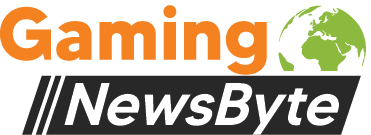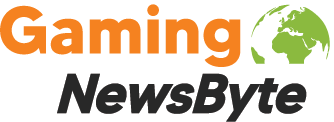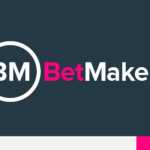- Home
- Regional MarketsStay ahead of the curve with the latest developments in iGaming across global regions. From regulatory updates and market entries to localized trends and emerging opportunities, this section covers how the iGaming landscape is evolving in key territories such as Africa, Europe, Latin America, and Asia. Whether you’re an operator, affiliate, or investor, get region-specific insights that matter.
- AfricaAfrica is fast becoming a hotbed for iGaming growth, driven by mobile penetration, a youthful population, and increasing internet access. This section explores regulatory frameworks, licensing updates, mobile betting trends, and market opportunities across key countries like Nigeria, Kenya, South Africa, and Ghana. Stay updated on how Africa is shaping the future of digital gaming.
- AsiaAsia presents both massive potential and complex regulatory challenges. From the booming markets in India and the Philippines to tightly controlled regions like China and South Korea, this section covers market trends, legal developments, and technological innovation. Discover how cultural factors, payment systems, and localization shape the iGaming landscape in Asia.
- EuropeEurope remains a mature yet constantly evolving iGaming market. From the highly regulated environments of the UK and Germany to emerging jurisdictions in Eastern Europe, this section covers compliance updates, market performance, taxation, and major operator moves. Track the region’s shifting regulatory landscape and its impact on operators, affiliates, and suppliers.
- Latin AmericaLatin America is one of the most promising growth regions in global iGaming. With countries like Brazil, Colombia, and Argentina opening up to regulation, this section delivers insights into new legislation, market entries, and consumer behavior. Follow the region’s rapid expansion and understand what it means for stakeholders looking to invest or operate.
- Business & IndustryGet the latest on the business side of iGaming — from mergers and acquisitions to leadership changes, financial results, market expansion, and strategic partnerships. This section covers how companies across the global iGaming ecosystem are evolving, investing, and competing. Whether you’re tracking operator growth, tech provider moves, or industry-wide trends, this is your hub for essential business intelligence.
- Mergers & AcquisitionsFollow the latest deals shaping the iGaming industry. This section highlights key mergers, acquisitions, joint ventures, and strategic buyouts involving operators, suppliers, affiliates, and technology providers. From billion-dollar consolidations to market-specific takeovers, stay informed on how these moves are redefining the competitive landscape and driving growth across global iGaming markets.
- PartnershipsExplore the latest strategic alliances shaping the global iGaming industry. This section highlights collaborations between operators, suppliers, affiliates, tech providers, and media partners. Stay informed on joint ventures, sponsorships, content integrations, and regional expansions that drive innovation, market reach, and competitive advantage.
- TechnologyDiscover how cutting-edge technology is transforming the iGaming landscape. This section covers innovations in software development, AI, blockchain, cybersecurity, data analytics, and mobile gaming infrastructure. Stay informed on the tools and trends powering more secure, scalable, and immersive gaming experiences worldwide.
- Games & ContentExplore the latest in iGaming innovation — from cutting-edge slot releases and live casino experiences to game mechanics, software development, and content partnerships. This section covers everything about the games that drive player engagement, including game studio news, performance trends, content distribution, and localization strategies. Stay informed on what’s shaping the next generation of iGaming entertainment.
- Casino/SlotsStay updated with the latest trends, new releases, and innovations in the casino and slots world. From classic fruit machines to cutting-edge video slots and progressive jackpots, this section covers game launches, software providers, gameplay features, and player favorites. Discover how casinos are evolving their slot offerings to engage and entertain players worldwide.
- Crash GamesDive into the fast-paced world of crash games — a rising star in the iGaming arena known for its simple mechanics and thrilling, high-risk gameplay. This section covers the latest game launches, strategies, provider updates, and regulatory developments shaping this popular and rapidly growing genre. Stay ahead of trends and innovations driving player excitement in crash games.
- E-SportsStay ahead with the latest developments at the intersection of competitive gaming and betting. This section covers tournament highlights, betting trends, partnerships, platform innovations, and regulatory updates shaping the global e-sports betting ecosystem. Dive into insights on major titles like CS:GO, Dota 2, League of Legends, and the expanding role of e-sports in iGaming.
- MarketingExplore how iGaming brands are building visibility, engaging players, and driving growth through innovative marketing strategies. This section covers advertising campaigns, affiliate marketing trends, influencer partnerships, SEO, CRM, and retention tactics. From compliance challenges to breakthrough creative, discover how the industry markets itself in a highly competitive and regulated space.
- AffiliatesStay up to date with the evolving world of iGaming affiliates — from partnership models and commission structures to regulation, SEO strategies, and traffic trends. This section highlights key affiliate networks, program launches, success stories, and the latest shifts in compliance and tracking technologies. Whether you’re an affiliate, operator, or marketer, get insights into how affiliate marketing continues to drive player acquisition in the iGaming space.
- CSRDiscover how iGaming companies are making a positive impact beyond the balance sheet. This section highlights initiatives in responsible gaming, community development, environmental sustainability, diversity and inclusion, education, and mental health. Explore how operators, suppliers, and affiliates are integrating social values into their business strategies to build trust, accountability, and long-term value.
- MarketingUnpack the biggest and boldest iGaming marketing campaigns from around the world. This section features creative strategies, media buys, sponsorship deals, and multi-channel promotions that drive brand awareness and user acquisition. From sportsbook launches to casino rebrands, see how top brands stand out in a crowded market.
- Platforms & PaymentsStay informed about the technology and financial systems powering the iGaming industry. This section covers platform developments, sportsbook and casino software solutions, payment gateways, digital wallets, cryptocurrencies, and security innovations. Learn how operators streamline user experience, ensure fast and secure transactions, and adapt to evolving regulatory requirements.
- Lottery ProvidersStay updated on the companies delivering innovative lottery solutions to the iGaming market. This section covers traditional and digital lottery operators, platform technology, new game launches, regulatory developments, and partnerships shaping the lottery landscape. Discover how providers are modernizing lottery experiences to attract new players and expand market reach.
- Payment ProvidersExplore the key players enabling seamless, secure, and efficient financial transactions in the iGaming industry. This section covers payment gateways, digital wallets, cryptocurrency solutions, fraud prevention tools, and emerging payment technologies. Stay informed on how payment providers are evolving to meet regulatory demands and enhance the player experience worldwide.
- Platform ProvidersDiscover the companies behind the technology powering iGaming operators worldwide. This section covers platform providers offering sportsbook, casino, and betting solutions — including turnkey systems, backend management tools, and player engagement features. Stay updated on new product launches, partnerships, integrations, and innovations driving the industry’s infrastructure.
- RegulationsKeep up with the ever-changing legal landscape governing the iGaming industry worldwide. This section covers licensing updates, compliance requirements, government policies, taxation changes, and enforcement actions across different jurisdictions. Stay informed on how regulations impact operators, affiliates, and players, and learn about emerging frameworks shaping the future of online gaming.
- Betting BoardsGet the latest updates from regulatory and oversight bodies that govern sports betting and iGaming markets worldwide. This section covers decisions, licensing approvals, policy changes, and enforcement actions by betting boards and commissions. Stay informed on how these authorities influence market operations, player protection, and industry standards.
- ComplianceStay informed on the critical rules and standards that keep the iGaming industry operating fairly and legally. This section covers anti-money laundering (AML), responsible gaming policies, data protection, regulatory audits, and enforcement measures. Learn how operators and affiliates navigate complex compliance requirements to protect players and maintain trust.
- Opinion PieceDive into expert perspectives, analysis, and commentary on the latest trends, challenges, and innovations in the iGaming industry. This section features insights from industry leaders, analysts, and influencers, providing thoughtful takes on regulation, technology, marketing, and market developments. Stay informed and inspired by diverse viewpoints shaping the future of iGaming.
- Events
- Home
- Regional MarketsStay ahead of the curve with the latest developments in iGaming across global regions. From regulatory updates and market entries to localized trends and emerging opportunities, this section covers how the iGaming landscape is evolving in key territories such as Africa, Europe, Latin America, and Asia. Whether you’re an operator, affiliate, or investor, get region-specific insights that matter.
- AfricaAfrica is fast becoming a hotbed for iGaming growth, driven by mobile penetration, a youthful population, and increasing internet access. This section explores regulatory frameworks, licensing updates, mobile betting trends, and market opportunities across key countries like Nigeria, Kenya, South Africa, and Ghana. Stay updated on how Africa is shaping the future of digital gaming.
- AsiaAsia presents both massive potential and complex regulatory challenges. From the booming markets in India and the Philippines to tightly controlled regions like China and South Korea, this section covers market trends, legal developments, and technological innovation. Discover how cultural factors, payment systems, and localization shape the iGaming landscape in Asia.
- EuropeEurope remains a mature yet constantly evolving iGaming market. From the highly regulated environments of the UK and Germany to emerging jurisdictions in Eastern Europe, this section covers compliance updates, market performance, taxation, and major operator moves. Track the region’s shifting regulatory landscape and its impact on operators, affiliates, and suppliers.
- Latin AmericaLatin America is one of the most promising growth regions in global iGaming. With countries like Brazil, Colombia, and Argentina opening up to regulation, this section delivers insights into new legislation, market entries, and consumer behavior. Follow the region’s rapid expansion and understand what it means for stakeholders looking to invest or operate.
- Business & IndustryGet the latest on the business side of iGaming — from mergers and acquisitions to leadership changes, financial results, market expansion, and strategic partnerships. This section covers how companies across the global iGaming ecosystem are evolving, investing, and competing. Whether you’re tracking operator growth, tech provider moves, or industry-wide trends, this is your hub for essential business intelligence.
- Mergers & AcquisitionsFollow the latest deals shaping the iGaming industry. This section highlights key mergers, acquisitions, joint ventures, and strategic buyouts involving operators, suppliers, affiliates, and technology providers. From billion-dollar consolidations to market-specific takeovers, stay informed on how these moves are redefining the competitive landscape and driving growth across global iGaming markets.
- PartnershipsExplore the latest strategic alliances shaping the global iGaming industry. This section highlights collaborations between operators, suppliers, affiliates, tech providers, and media partners. Stay informed on joint ventures, sponsorships, content integrations, and regional expansions that drive innovation, market reach, and competitive advantage.
- TechnologyDiscover how cutting-edge technology is transforming the iGaming landscape. This section covers innovations in software development, AI, blockchain, cybersecurity, data analytics, and mobile gaming infrastructure. Stay informed on the tools and trends powering more secure, scalable, and immersive gaming experiences worldwide.
- Games & ContentExplore the latest in iGaming innovation — from cutting-edge slot releases and live casino experiences to game mechanics, software development, and content partnerships. This section covers everything about the games that drive player engagement, including game studio news, performance trends, content distribution, and localization strategies. Stay informed on what’s shaping the next generation of iGaming entertainment.
- Casino/SlotsStay updated with the latest trends, new releases, and innovations in the casino and slots world. From classic fruit machines to cutting-edge video slots and progressive jackpots, this section covers game launches, software providers, gameplay features, and player favorites. Discover how casinos are evolving their slot offerings to engage and entertain players worldwide.
- Crash GamesDive into the fast-paced world of crash games — a rising star in the iGaming arena known for its simple mechanics and thrilling, high-risk gameplay. This section covers the latest game launches, strategies, provider updates, and regulatory developments shaping this popular and rapidly growing genre. Stay ahead of trends and innovations driving player excitement in crash games.
- E-SportsStay ahead with the latest developments at the intersection of competitive gaming and betting. This section covers tournament highlights, betting trends, partnerships, platform innovations, and regulatory updates shaping the global e-sports betting ecosystem. Dive into insights on major titles like CS:GO, Dota 2, League of Legends, and the expanding role of e-sports in iGaming.
- MarketingExplore how iGaming brands are building visibility, engaging players, and driving growth through innovative marketing strategies. This section covers advertising campaigns, affiliate marketing trends, influencer partnerships, SEO, CRM, and retention tactics. From compliance challenges to breakthrough creative, discover how the industry markets itself in a highly competitive and regulated space.
- AffiliatesStay up to date with the evolving world of iGaming affiliates — from partnership models and commission structures to regulation, SEO strategies, and traffic trends. This section highlights key affiliate networks, program launches, success stories, and the latest shifts in compliance and tracking technologies. Whether you’re an affiliate, operator, or marketer, get insights into how affiliate marketing continues to drive player acquisition in the iGaming space.
- CSRDiscover how iGaming companies are making a positive impact beyond the balance sheet. This section highlights initiatives in responsible gaming, community development, environmental sustainability, diversity and inclusion, education, and mental health. Explore how operators, suppliers, and affiliates are integrating social values into their business strategies to build trust, accountability, and long-term value.
- MarketingUnpack the biggest and boldest iGaming marketing campaigns from around the world. This section features creative strategies, media buys, sponsorship deals, and multi-channel promotions that drive brand awareness and user acquisition. From sportsbook launches to casino rebrands, see how top brands stand out in a crowded market.
- Platforms & PaymentsStay informed about the technology and financial systems powering the iGaming industry. This section covers platform developments, sportsbook and casino software solutions, payment gateways, digital wallets, cryptocurrencies, and security innovations. Learn how operators streamline user experience, ensure fast and secure transactions, and adapt to evolving regulatory requirements.
- Lottery ProvidersStay updated on the companies delivering innovative lottery solutions to the iGaming market. This section covers traditional and digital lottery operators, platform technology, new game launches, regulatory developments, and partnerships shaping the lottery landscape. Discover how providers are modernizing lottery experiences to attract new players and expand market reach.
- Payment ProvidersExplore the key players enabling seamless, secure, and efficient financial transactions in the iGaming industry. This section covers payment gateways, digital wallets, cryptocurrency solutions, fraud prevention tools, and emerging payment technologies. Stay informed on how payment providers are evolving to meet regulatory demands and enhance the player experience worldwide.
- Platform ProvidersDiscover the companies behind the technology powering iGaming operators worldwide. This section covers platform providers offering sportsbook, casino, and betting solutions — including turnkey systems, backend management tools, and player engagement features. Stay updated on new product launches, partnerships, integrations, and innovations driving the industry’s infrastructure.
- RegulationsKeep up with the ever-changing legal landscape governing the iGaming industry worldwide. This section covers licensing updates, compliance requirements, government policies, taxation changes, and enforcement actions across different jurisdictions. Stay informed on how regulations impact operators, affiliates, and players, and learn about emerging frameworks shaping the future of online gaming.
- Betting BoardsGet the latest updates from regulatory and oversight bodies that govern sports betting and iGaming markets worldwide. This section covers decisions, licensing approvals, policy changes, and enforcement actions by betting boards and commissions. Stay informed on how these authorities influence market operations, player protection, and industry standards.
- ComplianceStay informed on the critical rules and standards that keep the iGaming industry operating fairly and legally. This section covers anti-money laundering (AML), responsible gaming policies, data protection, regulatory audits, and enforcement measures. Learn how operators and affiliates navigate complex compliance requirements to protect players and maintain trust.
- Opinion PieceDive into expert perspectives, analysis, and commentary on the latest trends, challenges, and innovations in the iGaming industry. This section features insights from industry leaders, analysts, and influencers, providing thoughtful takes on regulation, technology, marketing, and market developments. Stay informed and inspired by diverse viewpoints shaping the future of iGaming.
- Events
Now Reading: iGaming Regulation and Market Prospects in Rwanda 2025
- 01
iGaming Regulation and Market Prospects in Rwanda 2025
- Home//
- Regional Markets//Stay ahead of the curve with the latest developments in iGaming across global regions. From regulatory updates and market entries to localized trends and emerging opportunities, this section covers how the iGaming landscape is evolving in key territories such as Africa, Europe, Latin America, and Asia. Whether you’re an operator, affiliate, or investor, get region-specific insights that matter.
- Africa//Africa is fast becoming a hotbed for iGaming growth, driven by mobile penetration, a youthful population, and increasing internet access. This section explores regulatory frameworks, licensing updates, mobile betting trends, and market opportunities across key countries like Nigeria, Kenya, South Africa, and Ghana. Stay updated on how Africa is shaping the future of digital gaming.
- Asia//Asia presents both massive potential and complex regulatory challenges. From the booming markets in India and the Philippines to tightly controlled regions like China and South Korea, this section covers market trends, legal developments, and technological innovation. Discover how cultural factors, payment systems, and localization shape the iGaming landscape in Asia.
- Europe//Europe remains a mature yet constantly evolving iGaming market. From the highly regulated environments of the UK and Germany to emerging jurisdictions in Eastern Europe, this section covers compliance updates, market performance, taxation, and major operator moves. Track the region’s shifting regulatory landscape and its impact on operators, affiliates, and suppliers.
- Latin America//Latin America is one of the most promising growth regions in global iGaming. With countries like Brazil, Colombia, and Argentina opening up to regulation, this section delivers insights into new legislation, market entries, and consumer behavior. Follow the region’s rapid expansion and understand what it means for stakeholders looking to invest or operate.
- Business & Industry//Get the latest on the business side of iGaming — from mergers and acquisitions to leadership changes, financial results, market expansion, and strategic partnerships. This section covers how companies across the global iGaming ecosystem are evolving, investing, and competing. Whether you’re tracking operator growth, tech provider moves, or industry-wide trends, this is your hub for essential business intelligence.
- Mergers & Acquisitions//Follow the latest deals shaping the iGaming industry. This section highlights key mergers, acquisitions, joint ventures, and strategic buyouts involving operators, suppliers, affiliates, and technology providers. From billion-dollar consolidations to market-specific takeovers, stay informed on how these moves are redefining the competitive landscape and driving growth across global iGaming markets.
- Partnerships//Explore the latest strategic alliances shaping the global iGaming industry. This section highlights collaborations between operators, suppliers, affiliates, tech providers, and media partners. Stay informed on joint ventures, sponsorships, content integrations, and regional expansions that drive innovation, market reach, and competitive advantage.
- Technology//Discover how cutting-edge technology is transforming the iGaming landscape. This section covers innovations in software development, AI, blockchain, cybersecurity, data analytics, and mobile gaming infrastructure. Stay informed on the tools and trends powering more secure, scalable, and immersive gaming experiences worldwide.
- Games & Content//Explore the latest in iGaming innovation — from cutting-edge slot releases and live casino experiences to game mechanics, software development, and content partnerships. This section covers everything about the games that drive player engagement, including game studio news, performance trends, content distribution, and localization strategies. Stay informed on what’s shaping the next generation of iGaming entertainment.
- Casino/Slots//Stay updated with the latest trends, new releases, and innovations in the casino and slots world. From classic fruit machines to cutting-edge video slots and progressive jackpots, this section covers game launches, software providers, gameplay features, and player favorites. Discover how casinos are evolving their slot offerings to engage and entertain players worldwide.
- Crash Games//Dive into the fast-paced world of crash games — a rising star in the iGaming arena known for its simple mechanics and thrilling, high-risk gameplay. This section covers the latest game launches, strategies, provider updates, and regulatory developments shaping this popular and rapidly growing genre. Stay ahead of trends and innovations driving player excitement in crash games.
- E-Sports//Stay ahead with the latest developments at the intersection of competitive gaming and betting. This section covers tournament highlights, betting trends, partnerships, platform innovations, and regulatory updates shaping the global e-sports betting ecosystem. Dive into insights on major titles like CS:GO, Dota 2, League of Legends, and the expanding role of e-sports in iGaming.
- Marketing//Explore how iGaming brands are building visibility, engaging players, and driving growth through innovative marketing strategies. This section covers advertising campaigns, affiliate marketing trends, influencer partnerships, SEO, CRM, and retention tactics. From compliance challenges to breakthrough creative, discover how the industry markets itself in a highly competitive and regulated space.
- Affiliates//Stay up to date with the evolving world of iGaming affiliates — from partnership models and commission structures to regulation, SEO strategies, and traffic trends. This section highlights key affiliate networks, program launches, success stories, and the latest shifts in compliance and tracking technologies. Whether you’re an affiliate, operator, or marketer, get insights into how affiliate marketing continues to drive player acquisition in the iGaming space.
- CSR//Discover how iGaming companies are making a positive impact beyond the balance sheet. This section highlights initiatives in responsible gaming, community development, environmental sustainability, diversity and inclusion, education, and mental health. Explore how operators, suppliers, and affiliates are integrating social values into their business strategies to build trust, accountability, and long-term value.
- Marketing//Unpack the biggest and boldest iGaming marketing campaigns from around the world. This section features creative strategies, media buys, sponsorship deals, and multi-channel promotions that drive brand awareness and user acquisition. From sportsbook launches to casino rebrands, see how top brands stand out in a crowded market.
- Platforms & Payments//Stay informed about the technology and financial systems powering the iGaming industry. This section covers platform developments, sportsbook and casino software solutions, payment gateways, digital wallets, cryptocurrencies, and security innovations. Learn how operators streamline user experience, ensure fast and secure transactions, and adapt to evolving regulatory requirements.
- Lottery Providers//Stay updated on the companies delivering innovative lottery solutions to the iGaming market. This section covers traditional and digital lottery operators, platform technology, new game launches, regulatory developments, and partnerships shaping the lottery landscape. Discover how providers are modernizing lottery experiences to attract new players and expand market reach.
- Payment Providers//Explore the key players enabling seamless, secure, and efficient financial transactions in the iGaming industry. This section covers payment gateways, digital wallets, cryptocurrency solutions, fraud prevention tools, and emerging payment technologies. Stay informed on how payment providers are evolving to meet regulatory demands and enhance the player experience worldwide.
- Platform Providers//Discover the companies behind the technology powering iGaming operators worldwide. This section covers platform providers offering sportsbook, casino, and betting solutions — including turnkey systems, backend management tools, and player engagement features. Stay updated on new product launches, partnerships, integrations, and innovations driving the industry’s infrastructure.
- Regulations//Keep up with the ever-changing legal landscape governing the iGaming industry worldwide. This section covers licensing updates, compliance requirements, government policies, taxation changes, and enforcement actions across different jurisdictions. Stay informed on how regulations impact operators, affiliates, and players, and learn about emerging frameworks shaping the future of online gaming.
- Betting Boards//Get the latest updates from regulatory and oversight bodies that govern sports betting and iGaming markets worldwide. This section covers decisions, licensing approvals, policy changes, and enforcement actions by betting boards and commissions. Stay informed on how these authorities influence market operations, player protection, and industry standards.
- Compliance//Stay informed on the critical rules and standards that keep the iGaming industry operating fairly and legally. This section covers anti-money laundering (AML), responsible gaming policies, data protection, regulatory audits, and enforcement measures. Learn how operators and affiliates navigate complex compliance requirements to protect players and maintain trust.
- Opinion Piece//Dive into expert perspectives, analysis, and commentary on the latest trends, challenges, and innovations in the iGaming industry. This section features insights from industry leaders, analysts, and influencers, providing thoughtful takes on regulation, technology, marketing, and market developments. Stay informed and inspired by diverse viewpoints shaping the future of iGaming.
- Events//

- Home
- Regulations
- iGaming Regulation and Market Prospects in Rwanda 2025
iGaming Regulation and Market Prospects in Rwanda 2025
Editor In ChiefRegulations, Africa, Regional Markets6 days ago35 Views
Taxes, Investments, and Legal Framework
Rwanda’s iGaming industry is undergoing significant regulatory modernization, positioning itself as a structured yet emerging market in Africa.
With over 14 million people, most under 25 years old, and a mobile penetration rate exceeding 80%, the country offers operators a vibrant, tech-savvy audience eager for digital entertainment.
Regulatory Bodies and Responsibilities
Rwanda’s iGaming sector is undergoing significant transformation, driven by regulatory reforms, tax adjustments, and rapid market growth.
Rwanda’s gaming activities are governed by Law No. 58/2011 (amended in 2024), which establishes the Ministry of Commerce as the primary regulatory body.
However, Prime Minister’s Order No. 028/03 (2024) recently designated the Rwanda Development Board as the new regulatory authority, prompting a temporary suspension of new license issuances and renewals pending policy revisions.
License Categories and Eligibility
The law recognizes six gaming categories:
- Lottery (Category A)
- Casino (Category B)
- Gaming Machines (Category C)
- Sports Betting (Category D)
- Internet Gaming (Category E)
- Other Games (Category F, subject to ministerial approval)
To operate an iGaming platform, businesses must secure a Category E license, valid nationwide. Applicants must:
- Be incorporated under Rwandan law.
- Demonstrate financial stability (minimum capital requirements vary by license type).
- Source gaming equipment from approved international suppliers with jurisdiction-controlled certifications
2025 Taxation Framework
The Draft Law on Gambling Taxation (2025) introduces sweeping reforms:
| Tax Type | Previous Rate | New Rate | Impact |
|---|---|---|---|
| Gross Gambling Revenue | 13% | 40% | Targets operator profits; offsets corporate tax removal |
| Withholding Tax | 15% | 25% | Deducted from player winnings pre-payout |
| VAT | 5% | 10% | Expanded to include digital transactions |
These changes aim to:
- Expand the tax base by capturing Rwanda’s booming iGaming market, which grew from FRw 251B (2023) to FRw 640B (2024) in total stakes
- Discourage problem gambling by reducing operator margins and player payouts.
- Align with regional trends, though critics warn of potential market contraction or illicit activity spillovers
Capital Requirements and Setup Costs
While Rwanda lacks explicit minimum capital mandates for iGaming licenses, operational costs include:
- License Fees: Determined by the RDB, historically ranging from $10,000 (sports betting) to $500,000 (casinos)
- Technology Infrastructure: Cloud-based platforms with geolocation compliance cost $200,000–$500,000 annually.
- AML Systems: Real-time monitoring tools require $50,000–$150,000 in initial setup.
Why Betting and Gambling Firms Should Consider Rwanda
Rwanda’s iGaming market is growing steadily, with projected revenues reaching approximately $176 million in 2025 and expected to grow at a CAGR of 1.8% through 2029. Key drivers include:
- Youthful Demographics: Over 60% of the population is under 25, representing a digitally savvy and engaged audience.
- Mobile Connectivity: With 92% mobile penetration and expanding 4G coverage, mobile-first iGaming platforms can reach a broad customer base.
- Market Growth: The dominant operator, betPawa, commands over 92% market share with rapid year-on-year growth, signaling strong demand and room for new entrants in niche segments like sports betting and online casinos.
- Regulatory Stability: The RDB’s clear licensing and oversight framework reduces uncertainty and fosters investor confidence.
- Tax Incentives: Free Economic Zones offer 0% corporate tax and withholding tax exemptions, while employment-based tax discounts reward job creation.
Payment Methods and Infrastructure
Rwanda’s payment ecosystem is dominated by mobile money platforms such as MTN Mobile Money and Airtel Money, which facilitate seamless cashless transactions.
Operators must integrate with licensed financial institutions to ensure compliance with AML regulations and enable secure deposits and withdrawals.
The country’s improving internet speeds and digital infrastructure support smooth user experiences, critical for iGaming success.
Conclusion
Rwanda’s iGaming sector offers high-reward potential amid regulatory recalibration. While the 40% GGR tax poses profitability challenges, strategic entrants can capitalize on untapped rural markets and cross-sector synergies.
Read Also: CasinoSites.casino: A Global Hub for Regulated Online Casinos.














